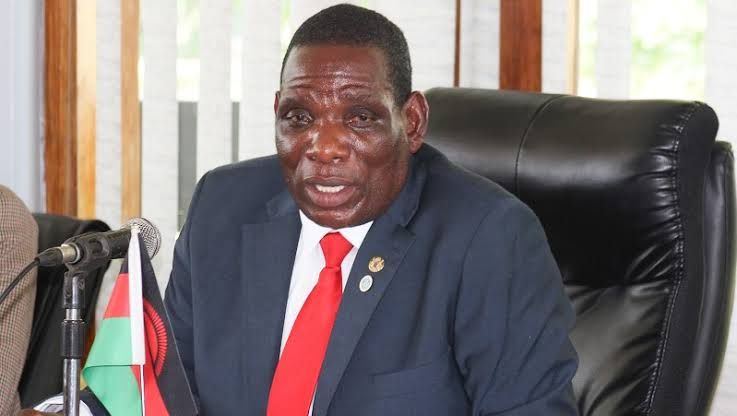By Twink Jones Gadama
In a significant development, Joseph Mwanamveka, the former finance minister of Malawi, has been cleared of all charges by the High Court in Lilongwe concerning allegations of providing false information to the International Monetary Fund (IMF). The case, which also involved former Reserve Bank of Malawi (RBM) Governor Dalitso Kabambe and Henry Mathanga, focused on accusations that they had misled the IMF, resulting in the cancellation of a $108 million Extended Credit Facility (ECF) agreement.
After carefully reviewing the evidence, Judge Redson Kapindu concluded on Tuesday that there was insufficient proof to convict Mwanamveka and therefore it would be unrealistic to pursue charges against him. This ruling comes as a resounding victory for the former finance minister, who maintained his innocence throughout the legal proceedings.

Mwanamveka’s defense argued that he was not employed at the RBM during the period in question, but instead held the position of Minister of Agriculture. This assertion supports the claim that he had no involvement in the alleged offenses related to the false information provided to the IMF.
In his ruling, Judge Kapindu cited the State’s acknowledgment that there was a lack of evidence to convict Mwanamveka. He noted that the prosecutor (the State) had demonstrated an inability and unwillingness to proceed with the case against the former finance minister, as stipulated in section 247(1) of the Criminal Procedure and Evidence Code.
The allegations made against Mwanamveka, Kabambe, and Mathanga were serious in nature. It was claimed that they knowingly provided the IMF with misleading information, leading to the cancellation of the $108 million ECF agreement. Such allegations carried significant repercussions, not only for the individuals involved but also for the reputation and economic stability of the nation.
The cancellation of the ECF had adverse effects on Malawi’s economy, as it eliminated the financial support that could have facilitated various developmental projects. Moreover, the credibility of the nation’s financial institutions and their ability to ensure transparency and accountability came under scrutiny as a result of these allegations.
The ruling by the High Court has far-reaching implications, not only for Mwanamveka but for the broader discussion regarding the handling of financial matters in Malawi. It highlights the importance of thorough investigations and the need for concrete evidence when pursuing such cases, particularly when the consequences can have a significant impact on the nation’s economy.
The acquittal of Mwanamveka has brought relief to his supporters, who have stood by him throughout the legal ordeal. They have maintained that he possesses an impeccable reputation and unwavering dedication to serving the nation. Mwanamveka’s tenure as finance minister was marked by numerous achievements and reforms that played a pivotal role in driving economic growth and stability in Malawi.
His supporters argue that the allegations against Mwanamveka were politically motivated, aiming to tarnish his image and undermine his accomplishments in his position as finance minister. The acquittal not only vindicates Mwanamveka but also raises questions regarding the legitimacy of the accusations and the motivations behind them.
As the nation moves forward, it is crucial for Malawi to restore faith in its financial institutions and leaders, ensuring that transparency and accountability remain at the forefront of their operations. The legal case against Mwanamveka, Kabambe, and Mathanga served as a wake-up call, prompting a reevaluation of existing procedures and leading to stricter regulations to prevent similar occurrences in the future.
The case has also shed light on the importance of effective communication and coordination between institutions such as the RBM and the Ministry of Finance. It emphasizes the need for a seamless flow of accurate information to uphold the credibility of Malawi’s financial sector, ultimately restoring the faith of international partners and investors.
Moving ahead, it is imperative for the State to learn from this case and strengthen its investigative processes to prevent baseless accusations from tarnishing the reputation of individuals and undermining the progress of the nation. The ruling by the High Court serves as a reminder that justice must prevail in the pursuit of truth, and individuals should not be falsely implicated in cases lacking substantial evidence.
In conclusion, former Finance Minister Joseph Mwanamveka’s acquittal by the High Court in Lilongwe marks a significant moment in Malawi’s legal history. The ruling validates Mwanamveka’s claims of innocence and highlights the importance of solid evidence in pursuing charges of false information. This case serves as a reminder of the need for transparency, accountability, and thoroughness in the country’s financial sector, and the role these elements play in ensuring economic stability and growth.


